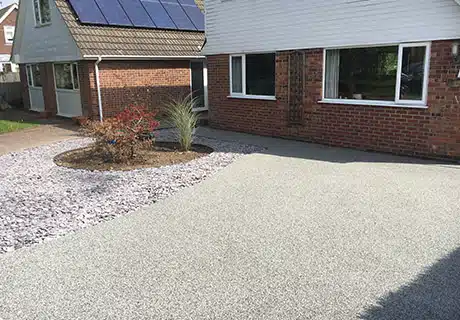When planning a new driveway installation in Nottingham, understanding and adhering to local regulations and permit requirements is essential. Complying with these rules ensures that your project is legal and avoids potential complications. Here’s a guide to help you navigate the regulations and permits involved in driveway installation in Nottingham.
1. Check for Planning Permission
In Nottingham, not all driveway projects require planning permission, but it’s important to determine whether your project falls under this requirement. Generally, planning permission is needed if you are creating a new driveway or altering an existing one in a way that significantly changes the appearance or use of your property. This is particularly relevant for driveways that cover more than five square meters of surface area and involve the installation of impermeable materials, which can impact drainage.
To determine if you need planning permission, visit Nottingham City Council’s planning portal or contact the planning department for guidance. They can provide specific information based on your property and proposed driveway changes.
2. Consider Permitted Development Rights
For some driveway projects, you may benefit from Permitted Development Rights, which allow certain types of work without the need for full planning permission. However, there are conditions and limitations to these rights, such as restrictions on the size and type of materials used. It’s important to review these conditions to ensure your project complies with the regulations.
3. Adhere to Building Regulations
Building regulations may apply if your driveway installation involves significant alterations or structural changes. For example, if you are installing a new driveway that includes alterations to the existing drainage system or requires significant excavation work, building regulations might be relevant. Building regulations ensure that the work is carried out to a standard that ensures safety and functionality.
To find out if your project requires building regulations approval, consult with a building control officer from Nottingham City Council or hire a qualified professional who can advise on compliance.
4. Manage Surface Water Drainage
Proper drainage is a key consideration for driveway projects, particularly to prevent issues with surface water runoff. Nottingham’s regulations often require that driveways incorporate measures to manage drainage effectively. This might involve using permeable materials or installing drainage systems to ensure water does not flow onto public highways or neighboring properties. Ensure your plans include adequate drainage solutions and comply with local requirements.
5. Obtain Necessary Permissions
If your driveway installation involves work on the public highway, such as dropping a curb to create an access point, you will need to obtain permission from Nottingham City Council. This often involves applying for a permit to carry out work on the highway and ensuring that any changes meet the council’s standards for safety and accessibility.
6. Consult with Professionals
Navigating regulations and permits can be complex, so it’s often beneficial to consult with professionals. Driveway contractors and planners who are familiar with local regulations can provide valuable advice and assist with permit applications. They can ensure that your project complies with all legal requirements and help streamline the approval process.
In conclusion, navigating driveway regulations and permits in Nottingham involves checking for planning permission, understanding Permitted Development Rights, adhering to building regulations, managing surface water drainage, obtaining necessary permissions for work on public highways, and consulting with professionals. By following these guidelines, you can ensure a smooth and compliant driveway installation process.
